The harrowing stories of Rohingya women who were raped by Myanmar military
More than 65,000 Rohingya Muslims have fled to Bangladesh from Myanmar since October after the Burmese army launched a crackdown in Rakhine State.
More than 65,000 Rohingya Muslims have fled to Bangladesh from Myanmar since October last year, after the Burmese army launched a crackdown in Rakhine State. This was in response to what they say was an attack by Rohingya insurgents in which nine police officers were killed. Waves of Rohingya civilians have since fled across the border, most living in makeshift camps and refugee centres. Many tell harrowing stories of the Burmese army committing human-rights abuses, such as gang rape, arson and extrajudicial killing.
American photojournalist Allison Joyce spent some time at refugee camps in Cox's Bazar, Bangladesh. IBTimes UK shares her sensitive portraits of Rohingya women, along with their harrowing stories of being raped by the Burmese military, to help bring the plight of these oppressed people to a wider audience.
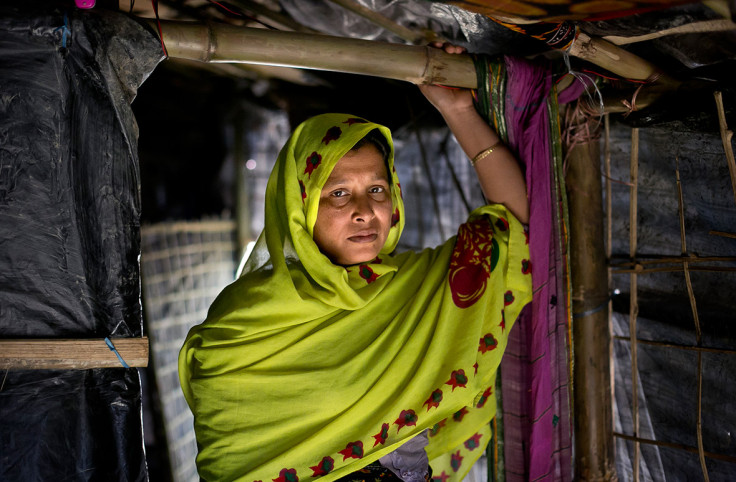
Nojiba came to Bangladesh two months ago from Delpara village in Myanmar. She describes a happy life living in Myanmar until three months ago when the military suddenly started coming to her village, beating, killing and harassing people. "I felt scared, I prayed and read the Koran, hoping to feel better. I lived in a constant state of fear." Nojiba says. "The day before I fled to Bangladesh the military came again to our village. They found the place in the bush where I was hiding with other women and girls. They took the young girls into nearby houses and beat and raped them. I could hear their screams. One soldier put a gun to my head and said 'Let's go'. I started screaming and fighting back and three men dragged me to a room in a nearby house. They held a gun to my head and two soldiers took turns raping me for an hour."
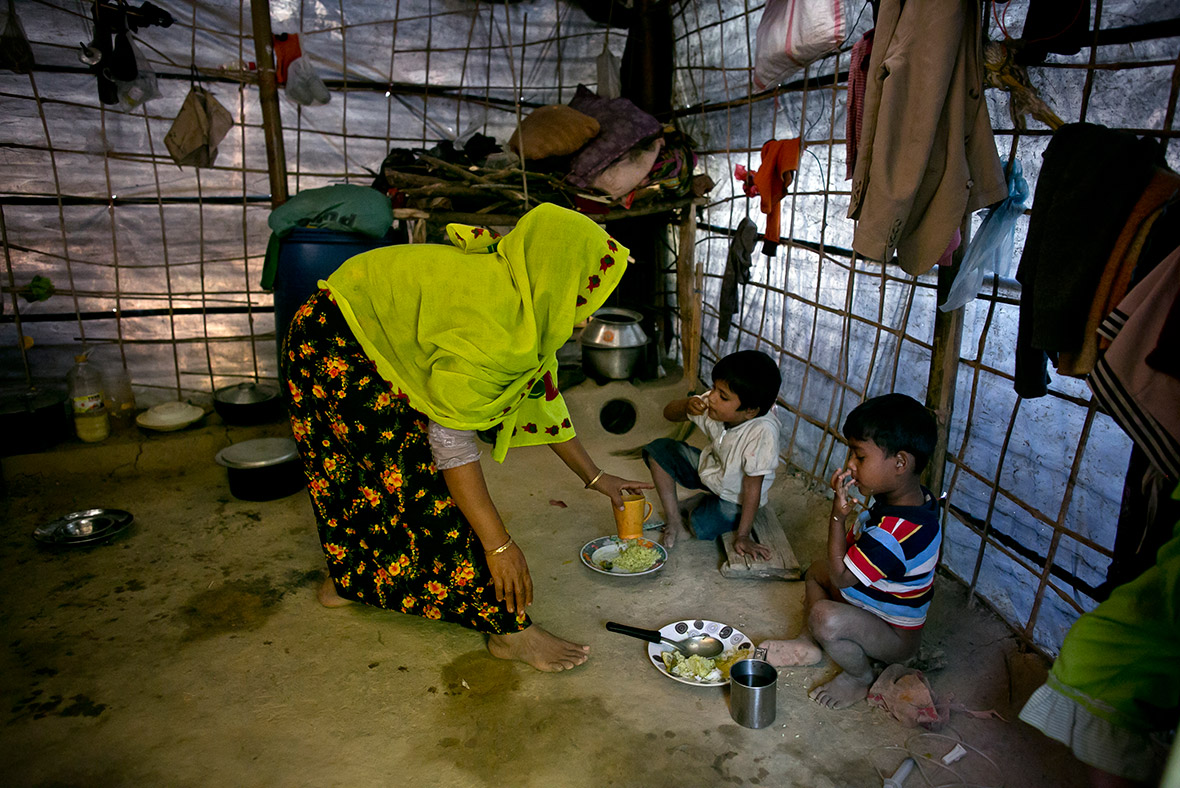


The next day she and her family decided it was time to flee to Bangladesh. They had to walk all day to the Naf river that separates Myanmar from Bangladesh. "My whole body hurt. I thought that I couldn't keep walking, I felt weak." They paid a boatman to help them cross the river and they finally made it to Kutapalong refugee camp in Bangladesh. "We don't have enough to eat here, but at least we can sleep well and it's safe enough that my children can leave the house." She has been getting mental health counselling from Doctors Without Border and says that "I want to move past my sorrows."
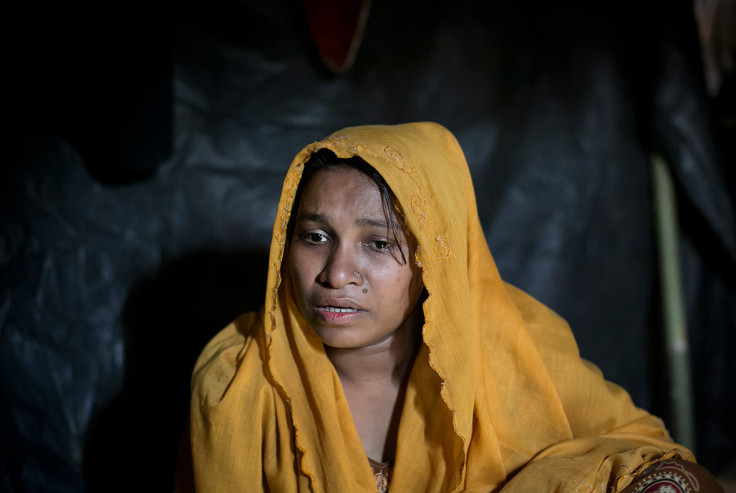
Fareza, 17, came to Bangladesh from Shilkhali village in Myanmar. She describes a happy life in Myanmar until four months ago when the military began attacking and harassing people in her village. She says a group of soldiers attacked her home on 16 January and dragged her and her family out into the front yard and beat them with their fists and the butt of their guns.



Fareza says they groped her everywhere and dragged her back into her house where one soldier raped her until she lost consciousness. She woke up bleeding and decided to flee to Bangladesh, where she made her way to Balu Kali refugee camp. She is six months pregnant and has not been able to make contact with her husband back in Myanmar. "For four months back in Myanmar I lived in a constant state of fear. At least here in Bangladesh I can sleep peacefully."
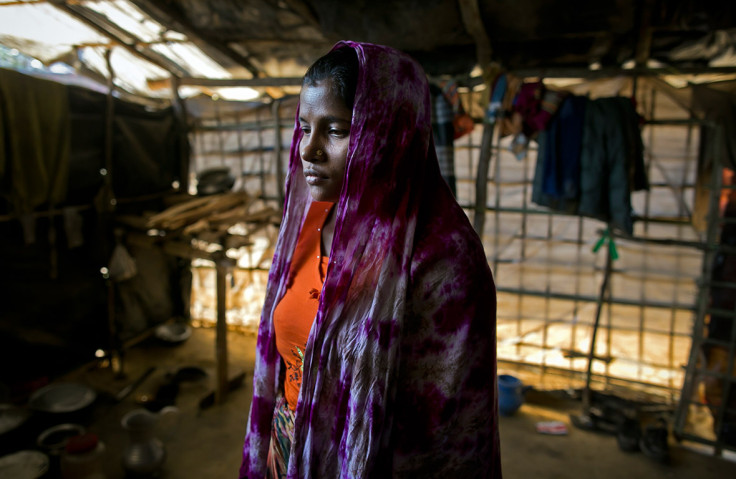
Jamalida Begum came to Bangladesh 15 days ago from Hadgudgapara village in Myanmar. Two months ago the military came to her village, killed her husband and burned her home to the ground with everything she owned in it. The next morning the military surrounded her village. "They dragged me and the other women to the yard and beat us. I was screaming and begging Allah to save me. The military screamed "Where is your Allah now? He's not saving you!"



Three men dragged Jamalida to the bush, pointed a gun at her and said 'If you resist, I'll shoot you' then took turns raping her until she lost consciousness. A few weeks after the rape, a group of foreign journalists came to her village and interviewed Jamalida and other rape victims. That night the military came to her village and cut the throat of the man who helped translate for the journalists. The soldiers went door to door with Jamalida's photo looking for her, and neighbours ran to warn her. She ran away and for five days she took shelter in the bush and in different houses until she fled to Bangladesh. She says that every night she has nightmares about the Myanmar military. "I have flashbacks when I hear loud noises. I've heard that the military has made big posters of my photo and they're still going door to door looking for me. I'll never be able to go back. If I go back, they'll kill me. I will never go back. Sometimes I'm scared that they'll find me here."
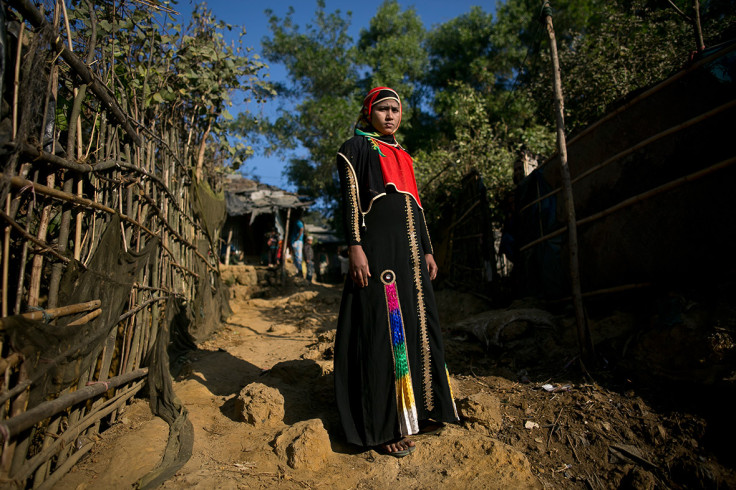
Another woman named Jamalida, who is 16 years old, came to Bangladesh a month ago from Shilkhali village in Myanmar. She says that on the first Friday in December the military moved into her village and started occupying the mosque and beating or killing whoever came in. "One day they attacked our home. I wasn't able to flee in time and they caught me and tied my hands and legs with rope. They tore off my clothes and punched me everywhere with their fists and with the butt of their guns. For three hours, four soldiers took turns raping me until I lost consciousness."



When she woke up she went to the Naf river, which separates Myanmar from Bangladesh, and a boatman took her across, where she made her way to Kutalapong refugee camp. "I never had peace in Burma and this last incident was horrible. Here, I feel peace. I can sleep well here, I can go outside safely. In Burma, I couldn't go outside and I wasn't safe in my home. We don't have enough food here, but at least we have peace." she says "Every night when I sleep I have nightmares and I relive the rape again."
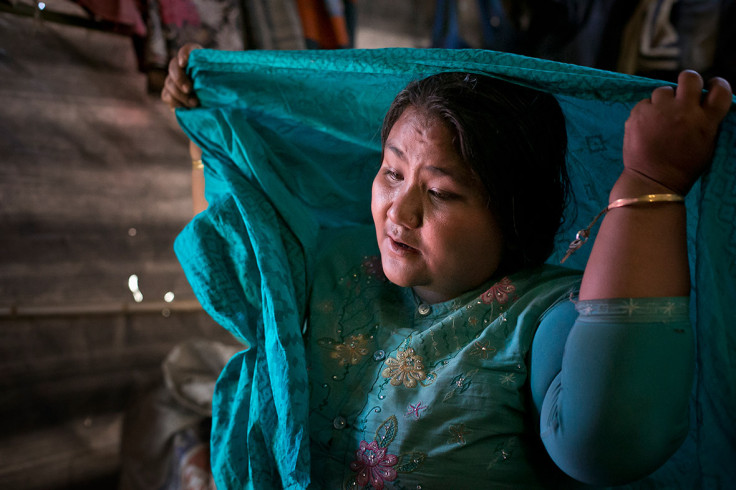
Nurjahan is from Nerebil village in Myanmar. She says her life in the village was happy until two months ago when the military attacked her village. Five soldiers came to her house and tied her eyes with a scarf. Two soldiers took turns raping her in front of her daughter. After 15 minutes she lost consciousness, and when she woke up they were gone and her young daughter was crying beside her. A few days later her husband was killed by the military, and she got word that the military had murdered a man who worked as a translator for foreign journalists interviewing rape survivors, and that they were looking for one of the survivors who dared to speak on camera. She decided it was time to flee to Bangladesh. She hid in another village for 3 days until she made her way to the Naf river which separates Myanmar from Bangladesh, and paid a boat to take her across, where she made her way to Kutalapalong refugee camp.



"I lived in Burma for 31 years but I never saw this sort of thing before. The past three months things have become horrible. I still talk to my family in Myanmar all the time. They told me that the military came again today and set my uncle's beard on fire." she says "When I close my eyes at night to go to sleep I become terrified that the military will come again. I haven't slept well since I came here."
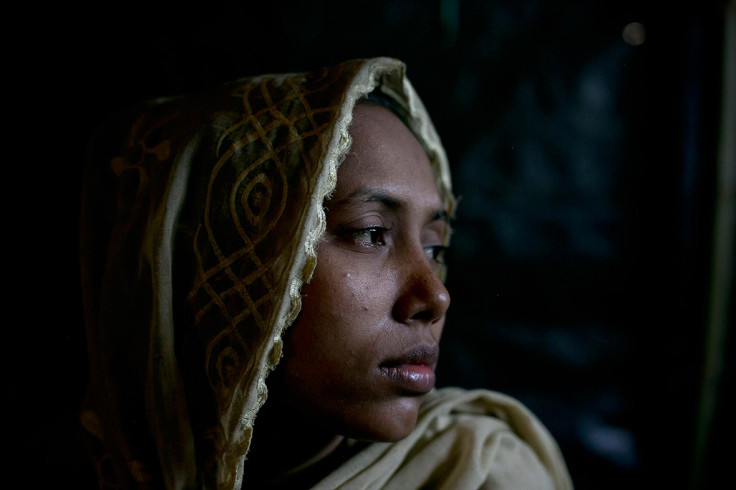
Yasmin escaped from her home in the Naine Chong Village in Myanmar after the military attacked her village. The broke into her home, took her husband away, and then four soldiers took turns raping her. She escaped and hid in the hills for seven days before she was able to escape to Bangladesh. She had to pay 30,000 Myanmar Kyat (about $22) to a boatman smuggler to take her across the Naf river into Bangladesh. She still hasn't heard from her husband and has no idea if he is alive or dead.
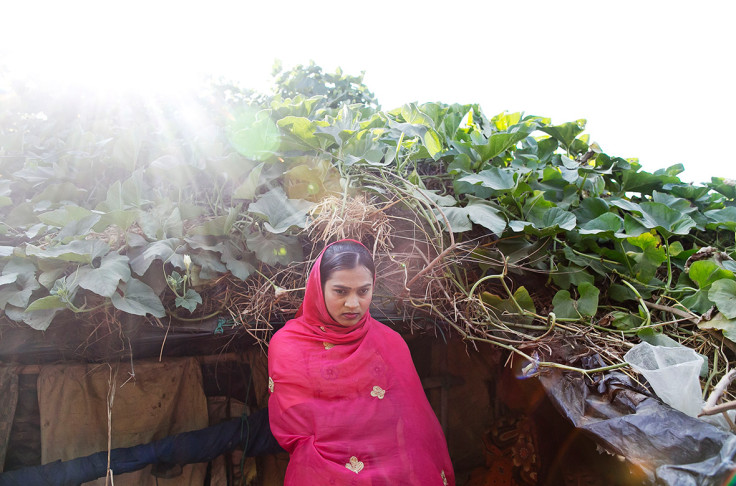
Two months ago Nurkalima escaped from her village, the Burgogi village, in Myanmar after the military attacked. Some of her neighbours were shot and killed. Her mother and father weren't fast enough to escape but they are waiting for an opportunity to join her in Bangladesh.
The Rohingya, a mostly stateless Muslim group numbering about 1.1 million, are the majority in Rakhine state and smaller communities in Bangladesh, Thailand and Malaysia. The stateless Muslim group are routinely described by human rights organisations as the "most oppressed people in the world" and a "minority that continues to face statelessness and persecution."
Myanmar's government, led by Nobel Peace Prize winner Aung San Suu Kyi, denies the accusations and insists a lawful counter-insurgency operation is underway. The violence in border regions has raised questions about her commitment to human rights and ability to rein in the military, which retains a major political role.
© Copyright IBTimes 2025. All rights reserved.






















